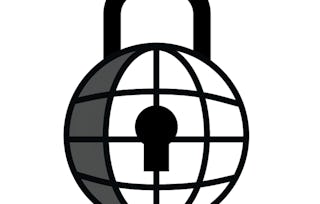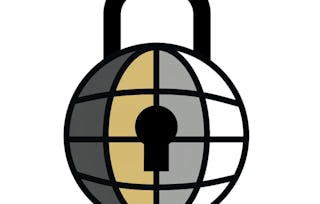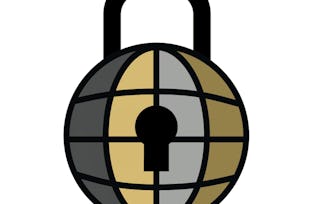This course will examine the drinking water and electricity infrastructures, and various policies that have been developed to help guide and strengthen their cybersecurity programs. The drinking water and electricity infrastructures are two of fourteen subsectors comprising what are known as "lifeline infrastructure". The 2013 National Infrastructure Protection Plan identifies four lifeline infrastructure sectors: 1) water, 2) energy, 3) transportation, and 4) communications. These sectors are designated "lifeline" because many other infrastructures depend upon them. The drinking water subsector is part of the water sector, and the electricity subsector is part of the energy sector. Both subsectors are overseen by the Department of Homeland Security National Protection and Programs Directorate which manages the DHS National Infrastructure Protection Program. The NIPP employs a five-step continuous improvement program called the Risk Management Framework. NIPP implementation is overseen by DHS-designated Sector-Specific Agencies staffed by various Federal departments. The Sector-Specific Agencies work in voluntary cooperation with industry representatives to apply the Risk Management Framework and document results in corresponding Sector-Specific Plans. The program began in 2007 and the most recent Sector-Specific Plans were published in 2016. In February 2013, President Obama issued Executive 13636 directing the National Institute of Standards and Technology to develop a voluntary set of recommendations for strengthening infrastructure cybersecurity measures. EO13636 also asked Federal agencies with regulating authority to make a recommendation whether the NIST Cybersecurity Framework should be made mandatory. The Environmental Protection Agency who is both the SSA and regulatory authority for the drinking water subsector recommended voluntary application of the NIST Cybersecurity Framework. The Department of Energy who is both the SSA and regulatory authority for the electricity subsector replied that it was already implementing the Electricity Subsector Cybersecurity Capability Maturity Model, which indeed was what the NIST Cybersecurity Framework was based on. The Department of Energy, though, recommended voluntary application of the ES-C2M2. This module will examine both the drinking water and electricity lifeline infrastructure subsectors, and elements and application of the NIST Cybersecurity Framework and ES-C2M2.

Cybersecurity Policy for Water and Electricity Infrastructures
Ends soon: Gain next-level skills with Coursera Plus for $199 (regularly $399). Save now.

Cybersecurity Policy for Water and Electricity Infrastructures
This course is part of Homeland Security and Cybersecurity Specialization

Instructor: Richard White
5,865 already enrolled
Included with
(181 reviews)
Skills you'll gain
Details to know

Add to your LinkedIn profile
13 assignments
See how employees at top companies are mastering in-demand skills

Build your subject-matter expertise
- Learn new concepts from industry experts
- Gain a foundational understanding of a subject or tool
- Develop job-relevant skills with hands-on projects
- Earn a shareable career certificate

There are 4 modules in this course
In this module we will examine the drinking water subsector and the NIST Cybersecurity Framework for strengthening this infrastructure's cybersecurity practices.
What's included
3 videos4 readings2 assignments1 discussion prompt
In this module we will take a closer look at the NIST Cybersecurity Framework and apply its tenets to different hypothetical situations. Also included in this module is course exam #3. Good luck!
What's included
3 videos4 assignments1 discussion prompt
In this module we will examine the North American electric grid and the Electricity Subsector Cyber Capability Maturity Model for strengthening this infrastructure's cybersecurity practices.
What's included
2 videos3 readings2 assignments1 discussion prompt
In this module we will take a closer look at the Electricity Subsector Cyber Capability Maturity Model and apply its tenets to different hypothetical situations. Also included in this module is course exam #4 and related project assignment. Good luck!
What's included
3 videos5 assignments1 discussion prompt
Earn a career certificate
Add this credential to your LinkedIn profile, resume, or CV. Share it on social media and in your performance review.
Instructor

Offered by
Explore more from Governance and Society

University of Colorado System

University of Colorado System

University of Colorado System
Why people choose Coursera for their career




Learner reviews
181 reviews
- 5 stars
69.78%
- 4 stars
21.97%
- 3 stars
5.49%
- 2 stars
0.54%
- 1 star
2.19%
Showing 3 of 181
Reviewed on Apr 27, 2020
Great instruction on the models, wouldn't get it at all looking at it by myself!
Reviewed on Sep 29, 2017
MORE ON CYBERSECURITY AND CRITICAL INFRASTRUCTURE WAS LEARNED AND WILL ENHANCE INVESTIGATION AND ANALYTIC SKILLS
Reviewed on Jun 29, 2019
I love how this course challenges your critical thinking and assessment skills.

Open new doors with Coursera Plus
Unlimited access to 10,000+ world-class courses, hands-on projects, and job-ready certificate programs - all included in your subscription
Advance your career with an online degree
Earn a degree from world-class universities - 100% online
Join over 3,400 global companies that choose Coursera for Business
Upskill your employees to excel in the digital economy
Frequently asked questions
To access the course materials, assignments and to earn a Certificate, you will need to purchase the Certificate experience when you enroll in a course. You can try a Free Trial instead, or apply for Financial Aid. The course may offer 'Full Course, No Certificate' instead. This option lets you see all course materials, submit required assessments, and get a final grade. This also means that you will not be able to purchase a Certificate experience.
When you enroll in the course, you get access to all of the courses in the Specialization, and you earn a certificate when you complete the work. Your electronic Certificate will be added to your Accomplishments page - from there, you can print your Certificate or add it to your LinkedIn profile.
Yes. In select learning programs, you can apply for financial aid or a scholarship if you can’t afford the enrollment fee. If fin aid or scholarship is available for your learning program selection, you’ll find a link to apply on the description page.
More questions
Financial aid available,

